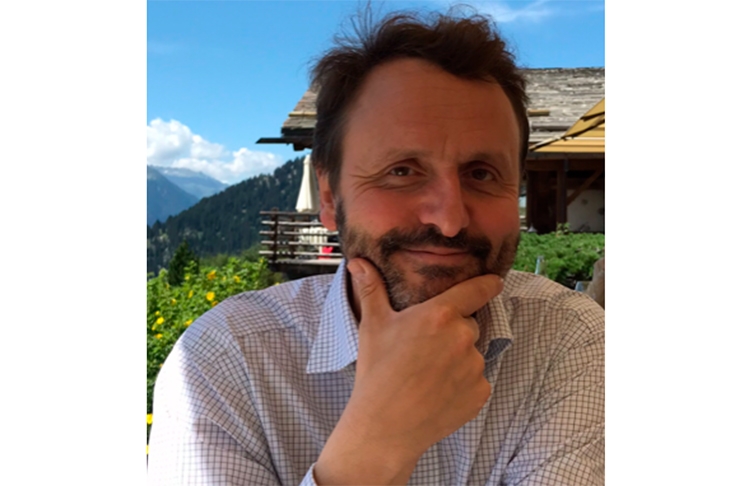I heard the shocking news last week that one of my oldest friends — Richard Edwards — had died suddenly of a stroke. He was just 54 and a picture of health.
I met Richard in 1988 when we were both PhD students at Cambridge. He had got the second-highest First in English in his year and was thought to have a brilliant academic career ahead of him, but as the year wore on it became clear that neither of us were particularly attracted to the scholarly life. Instead of dragging ourselves off to the library every day to ‘do the reading’, we would sit in his room drinking wine, making each other laugh and luxuriating in our mutual dissipation.
He taught me the word acedia, which refers to the ‘deadly sin’ of sloth, but in his telling it also meant the sheer pleasure of wantonly squandering your gifts. We had both felt weighed down by the need to please our parents and our teachers and decided to give ourselves a year off. At least, I thought we had. At the end of that academic year I’d achieved precisely nothing, but Richard, while appearing to do no work, had secured an MPhil.
He did a law conversion course, followed by a pupillage, and was called to the bar in 1993. He had a successful career as a barrister, acting for a number of claimants in high-profile cases in the art world, and was described as ‘simply masterful in court’ in the Legal 500. He became a QC in 2016.
Richard was one of five old friends I met up with every year for a boys’ Christmas lunch. Part of the ritual involved each of us telling the others about the high point and low point of our year. Richard’s high points always involved his family — his wife, Claire, whom he’d been married to for 25 years, and his two children, Elizabeth and Louis. Mine were more egocentric, but in truth these Christmas lunches were often the highlight of my year, not least because I got to see Richard.
He was a fervent Europhile, which meant lots of heated discussions about Brexit in the past few years, particularly after the wine began to flow. ‘All knives were out,’ he would tell Claire on his return. But I always thought there was something quintessentially English about him. On the outside he appeared to be an old-school English gentleman — charming, reserved, exquisitely well-mannered — but beneath the polished surface there roiled various passions and he could surprise you by a sudden outburst in which you glimpsed a moral seriousness within.
After Richard’s death, the physician associate who’d looked after him during his short stay in hospital spoke to his wife and children and they started telling him about his lifelong enthusiasms. Ruskin, Tennyson, Henry James, Tolstoy, Geoffrey Hill, Whitman — all came rushing out, as did the clouds Richard adored and knew so well. He also loved going for long walks with his children and pointing out all the wildflowers. He adored music, and played the violin every day — he was a man with a ferocious appetite for all things beautiful, defined by his avid curiosity.
But all this was suddenly put into perspective when Richard’s 19-year-old son Louis paused and said: ‘My father’s real passion was fairness.’ When Claire told me that, I felt myself welling up. Not only is it true, but as Claire said, it’s a testament to Richard that his son saw him in that way. He recognized the goodness in him — and saw that it animated everything he did. For a father to be seen as a moral exemplar by his children is a gold standard that most of us fail to live up to. I know I do.
We had planned to have lunch last month at the Hand and Flowers, Tom Kerridge’s pub in Marlow, but had to cancel at the last minute after the resurgence of the virus. I was annoyed at the time, having looked forward to it for months, but now I’m filled with sadness. It was a chance to see Richard again, to spend an afternoon basking in the warmth of his company, an opportunity now gone for ever. At the next Christmas lunch, the five of us who remain will not need to ask what the low point of our year has been.
But I can at least console myself that Richard never succumbed to acedia. On the contrary, he filled every unforgiving minute and lived a rich and happy life, overflowing with love and meaning. Farewell old friend. You were the best of us.
This article was originally published in The Spectator’s UK magazine. Subscribe to the US edition here.

























